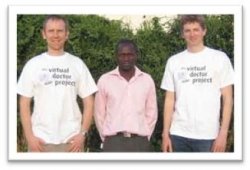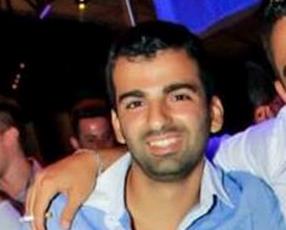Bitcoin and Africa: An Interview with the Virtual Doctor Project
Florence was admitted as an inpatient to Chanyanya Rural Health Clinic in very poor health, with swelling on her face and neck. She had recently been diagnosed as HIV positive and so had only been taking antiretroviral medication for two weeks. Clinic staff were not sure whether her worsening symptoms were a reaction to the ARV drug or Herpes Zoster virus. With the help of an infectious disease specialist at New York University Teaching Hospital, the correct medication was prescribed, and Florence recovered and was able to leave the clinic a few days later. This is just one example of how powerful it can be when rural clinics are given direct access to medical expertise.
This is a case study of a patient successfully treated by the Virtual Doctor Project (VDP). This project, which only began operating earlier this year, has the goal of using teleconferencing technology to bring the expertise of doctors from around the  world to remote areas of Africa, where it is sorely needed. Florence’s story highlights that need. Without the expertise of the doctor, it is less likely that she would have been able to get the help that she needed.
world to remote areas of Africa, where it is sorely needed. Florence’s story highlights that need. Without the expertise of the doctor, it is less likely that she would have been able to get the help that she needed.
I discovered the VDP while looking for charitable organizations accepting Bitcoin. Bitcoin is going to change the world, but it will not do it all by itself; there is going to need to be a coming together of people and resources for many different fields to help us overcome the challenges that we face today. I couldn’t think of a better example of that confluence than the VDP.
I was in contact with Paul Mustardé, the UK director of the VDP to ask a few questions both about the VDP and their decision to accept Bitcoin Donations.
The Interview
BTCWarrior: First and foremost, I would like to ask about the project itself. It is such a good idea that I am amazed that it has not been done before. What prompted you and your co-founder to establish The Virtual Doctor Project? What obstacles did you face and what support did you receive?
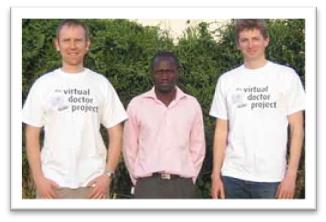 Paul: My co-founder Huw lived and worked in Zambia for 15 years and during that time he witnessed several people dying for lack of adequate local primary health care in rural areas where they have no doctors and understaffed health centres. He had heard about telemedicine in other environments and wondered whether it was possible in Zambia. I have a more technical and project managerial background and together we formed the idea behind the project in 2008 and in 2009 registered Virtual Development UK. Initially we met with scepticism from some doctors who believed that it would not work in Zambia and that it would be better putting funding and efforts into providing doctors, but over time it became clear that no matter how many doctors you train out there, they are not prepared to work in rural areas and over half leave the country for better salaries and conditions. Our project is a way of bringing the expertise of doctors to poor communities without having to physically place them there, which is almost impossible. Now that we are underway, the reaction from doctors is a positive one as they see the benefits to the community and to local health staff.
Paul: My co-founder Huw lived and worked in Zambia for 15 years and during that time he witnessed several people dying for lack of adequate local primary health care in rural areas where they have no doctors and understaffed health centres. He had heard about telemedicine in other environments and wondered whether it was possible in Zambia. I have a more technical and project managerial background and together we formed the idea behind the project in 2008 and in 2009 registered Virtual Development UK. Initially we met with scepticism from some doctors who believed that it would not work in Zambia and that it would be better putting funding and efforts into providing doctors, but over time it became clear that no matter how many doctors you train out there, they are not prepared to work in rural areas and over half leave the country for better salaries and conditions. Our project is a way of bringing the expertise of doctors to poor communities without having to physically place them there, which is almost impossible. Now that we are underway, the reaction from doctors is a positive one as they see the benefits to the community and to local health staff.
BTCWarrior: Could you describe, briefly, what the service is you provide?
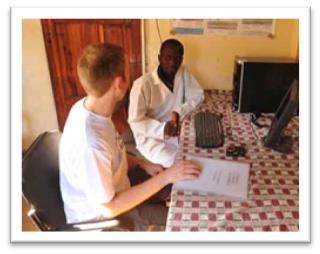
Paul: We provide a telemedicine service that connects clinical officers at rural health centres with doctors around the world for diagnostic and treatment advice, using the mobile network internet service in Zambia. We locate suitable clinics and provide computers and other IT gear, establish an internet connection, and then provide specialised telemedicine software and on-site training to get them started and also ongoing support. We have a database of doctors from a variety of medical fields that have offered to give their time and knowledge for free to answer questions from the clinic staff.
BTCWarrior: What are your expansion plans? How long do you see that as taking?
Paul: We hope to have 27 clinics being serviced by the end of our third year in Zambia (we are only half way through our first) and also in either Malawi, Tanzania, or Kenya where we are currently investigating opportunities
BTCWarrior: Is Virtual Doctors accepted and supported by the government or do you face any challenges in that area? How about with respect with other 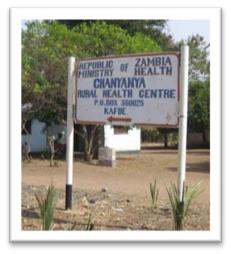 parts of Africa where you might hope to expand?
parts of Africa where you might hope to expand?
Paul: We find the Zambian government very supportive of our project as eHealth, as it is called, is very much on their agenda at the moment to try to address the very difficult situation they face getting adequate primary healthcare to their rural population. 1 child in 9 will not live to 5 years old and 13.5% of adults are HIV positive in Zambia. As they face an uphill battle to get doctors into rural areas, they are interested in how our project can help in those areas
BTCWarrior: There are a lot of serious health challenges, including high child mortality and HIV. How is Virtual Doctors able to ameliorate those problems?
Paul: Our project is aimed at improving the general level of primary healthcare in rural areas which will in turn affect those issues. We hope to a) reduce referrals to distant hospitals by allowing the clinic staff to diagnose and effectively treat more patients before conditions become so severe, b) improve the management of patients so patients are diagnosed more effectively the first time they present rather than returning multiple times as they are not being adequately treated, and c) improve the skills and experience of clinic staff as they get advice from specialists around the world, meaning better trained and more capable staff at rural locations. All these things will help improve the rural health statistics.
BTCWarrior: What is the reaction of the Zambians to the service? Are there any misperceptions of Western medicine that you find that you are dealing 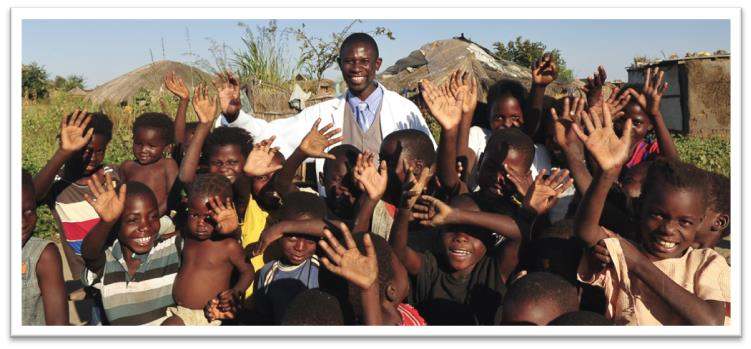 with?
with?
Paul: No. To be honest, we are always imressed with the level of knowledge of local staff, but they lack the ability to make definite diagnoses. The clinic staff are almost always excited about the opportunity it offers, not just for treating their patients, but also for building their own knowledge. They are always able to use the sometimes complex advice they receive and very much value this second opinion. Perhaps the bigger challenge is making volunteer doctors familiar with the restrictions faced working an environment like a Zambian health centre.
BTCWarrior: How are you recruiting doctors and what challenges are you facing in that arena?
Paul: So far we have simply accepted applications from doctors who have volunteered through our website and through a few posts we have made on online healthcare forums like HIFA 2015 who have been very supportive.
BTCWarrior: You have just begun accepting Bitcoin as of August 8. What prompted your decision to do so?
Paul: We were approached by Johnathan Turrall, who is a neighbour of ours at Sussex Innovation Centre and is creating a community of Bitcoin users (companies & charities) in the Brighton area. He mentioned that Bitcoin was possibly a new route to attracting donations and as a charity that is something we are always interested in. Once we had researched it properly and decided it was worth trying, he helped us to get started.
BTCWarrior: Do you personally use BTC?
Paul: No I don’t, and to be honest I had not heard of Bitcoin until Johnathan introduced us to the concept. We would happily collect Bitcoin and use them for purchases of equipment or supplies if there was a way of doing so with the established suppliers that we use. Hopefully that will happen in time.
BTCWarrior: Has accepting Bitcoin had any impact on your fund raising so far?
Paul: It hasn’t apart from being approached by several people like you wanting to know about us doing so. So far it appears that the donations that we have received are from dedicated Bitcoin users who keep up to date with forums discussing the spread of use. Hopefully as the use spreads and we receive coverage by the media, that will attract the wider Bitcoin-using community to hear about us.
BTCWarrior: How are you converting BTC to fiat? Are you doing the conversion in the UK or in Zambia?
Paul: As we have only recently starting accepting Bitcoin we have not yet converted to fiat. We would obviously look at which had the most advantageous exchange rate, but for the time being we will remain in Bitcoin and watch whether other places to spend in Bitcoin become available.
BTCWarrior: There has been a lot of talk about Bitcoin gaining widespread acceptance first in the developing world. People who live in countries with multiple borders may have to work in several currencies and languages; the economies and laws of the other countries may be quite different and confusing; and inflation may make conversion between currencies very difficult. Bitcoin would seem to provide an answer to a lot of those problems. Do you see BTC as being of any value in the communities that you work with in Africa? Do you think that there is enough infrastructure (like M-Pesa in Kenya) to allow for widespread adoption?
Paul: Actually, I definitely do because there is already an electronic currency that is used throughout Zambia every day and around Africa – talktime. Increasingly Zambians use units of talktime to pay bills and transfer funds to each other. It is a form of secure banking transaction that is getting very popular and is encouraged by the mobile phone providers as a service. Most people have pay-as-you-go accounts and can buy credit at every street corner throughout the country. They can then send some of their balance to another phone. Bitcoin seems to be a very advanced version of the same thing and so I am sure there may be some way the two could become interchangeable at some point.
BTCWarrior: Zambia is ranked as one of the poorest countries on earth despite having significant amounts of mineral wealth. In brief, what is the economic situation there right now? It seems that there has been some rebound in the copper market. Is there any reason to think that things may improve economically?
Paul: Indeed there is massive investment by China in exchange for lucrative copper mining contracts which will hopefully help to continue the economic improvement that is happening there. As with many developing countries, corruption and ineffective leadership makes the process a slow one, but private commerce with companies like mobile phone providers is helping to drive development. That said, things can change for the better or worse in Africa in a short time, so it remains to be seen. Economic growth based solely on natural resources is also not necessarily a sustainable one, nor does it necessarily benefit the general population, and Zambia is a very, very poor country as soon as you travel more than 10km away from the capital city.
Conclusion
In recent months, there has been a lot of hype about what country Bitcoin would most likely have a breakthrough in. It is really difficult to say, but it does seem that there is a good chance that it could happen in Africa given the infrastructure and the level of comfort people are getting paying for good with devices. At the same time, we need to be realistic about what it is like on the ground in Africa. There is tremendous opportunity in the future, that might substantially help the people of Africa, but there is also a tremendous amount of need right now.
The Virtual Doctor Project is doing something real to fill that need. They have, in a short amount of time, already opened five clinics and they have an aggressive plan for expansion. They have also recently been awarded 120,000 annual AdSense grant from Google to better promote their project. Projects like this need, and are worthy of our support. Please visit their bitcoin donation page and send what you can. You will be promoting the Bitcoin economy at the same time as helping someone truly in need
BitcoinWarrior.net is continuing to look for groups and organizations that need publicity. If you are part of, or know of, a charity, NPO or other group that has a connection to Bitcoin, please contact us. We would love to talk with you.
Please also tweet, share, and upvote this article to let as many people as possible know about this project. And, we love comments, so please leave one!
09/12/2013
